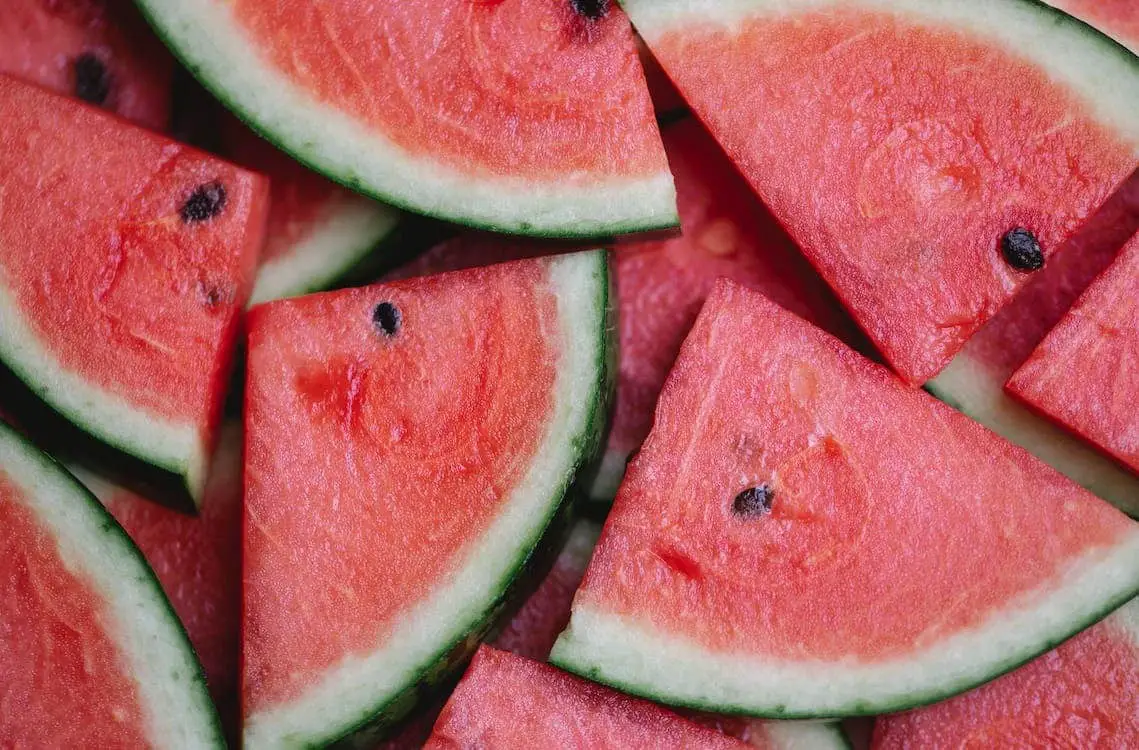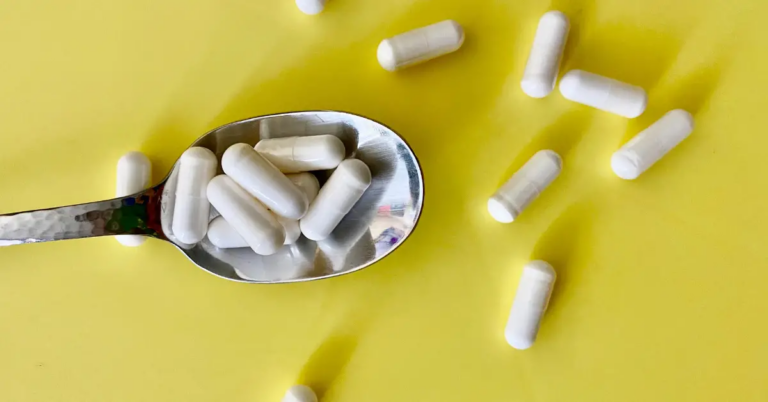As summer rolls around, watermelon becomes the go-to snack for its sweet, refreshing taste. With each bite, the sweet, refreshing taste of watermelon washes over you, instantly cooling your senses. It’s a familiar scene for many — the joy of indulging in nature’s ultimate thirst-quencher, watermelon.
But there’s more to this fruit than meets the eye, from its hydrating properties to its potential to boost your well-being. Watermelon is a nutritional powerhouse that can keep you both cool and healthy during the scorching months. With its natural sweetness and a host of nutrients, watermelon juice offers a range of health perks that might just surprise you.
Unpacking Watermelon’s Nutritional Wonders
Beyond its refreshing taste and cooling effect, watermelon emerges as a nutritional powerhouse. This tantalizing fruit, with its vibrant red hue and watery texture, packs a punch of health benefits that might just make you look at it with newfound respect.
Basic Nutritional Composition
Watermelon, a refreshing summer favorite, comprises primarily water (91%) and carbohydrates (7.5%). It’s impressively low in calories due to its minimal protein and fat content.
Each cup packs about 12 grams of carbohydrates, predominantly simple sugars like glucose, fructose, and sucrose. While it offers modest fiber content, it stands high in FODMAPs (fermentable short-chain carbohydrates) owing to its fructose concentration, which might trigger digestive discomfort in some individuals.
Vitamins and Minerals Galore
A slice of watermelon doesn’t just quench your thirst; it nourishes your body. It’s a commendable source of vitamin C, bolstering skin health and immune functionality.
But there’s more – potassium for regulating blood pressure and heart well-being, copper (often scanty in Western diets), vitamin B5 (pantothenic acid), and beta carotene, a precursor to vitamin A, are all bundled into this juicy fruit.
Citrulline and Arginine: More Than Amino Acids
Nestled especially in its white rind is the amino acid citrulline, which our body charmingly transforms into arginine. These two play pivotal roles in synthesizing nitric oxide, which is vital for dilating blood vessels and, thus, potentially moderating blood pressure. Arginine doesn’t stop there; it’s essential for various organs and fosters wound healing. Notably, watermelon juice emerges as a rich source of both citrulline and arginine.
Lycopene: The Red Treasure
Watermelon’s ravishing red isn’t just eye candy; it’s indicative of lycopene, a potent antioxidant. Astonishingly, watermelon surpasses even tomatoes in its lycopene content! Beyond its aesthetic appeal, lycopene aids in forming beta-carotene, which, in turn, becomes vitamin A in our body. Consuming fresh watermelon juice effectively elevates blood lycopene and beta-carotene levels.
Juicy Health Benefits of Watermelon
When envisioning a watermelon, most picture sun-soaked picnics and refreshing slices on a hot day. Yet, this vibrant fruit delivers far more than just summertime memories; it’s a health dynamo, brimming with benefits that span heart health to gut well-being. Let’s plunge into the wellness wonders this juicy delight offers!

A Friend to the Heart
Have you ever considered how watermelon might be silently nurturing your heart? Thanks to compounds like l-citrulline and l-arginine, this fruit actively battles inflammation and oxidative stress, common culprits behind cardiovascular ailments. [1,2]
It’s not just about keeping the heart’s rhythm but also ensuring its arteries remain flexible and clear. Through its ability to enhance nitric oxide production, watermelon eases blood vessel tension and promotes smoother blood flow. It even lends a hand in fine-tuning our cholesterol levels and calms inflammation.
Plus, munching on this fruit daily may trim down body weight, refine BMI, and fortify our body’s antioxidant capabilities, all leading to a heart that beats healthily and happily.
Tackling Obesity & Diabetes
In today’s world, the specters of obesity and diabetes loom large, with alarming statistics painting a concerning picture. Watermelon, however, stands as a flavorful sentinel against these health adversaries. Its role isn’t just passive – it actively influences our body’s metabolism, curbing glucose levels and enhancing our cardiovascular function.
What’s the secret? L-arginine, which boosts nitric oxide synthesis, is pivotal in balancing glucose levels and improving vascular function. So, as you savor each juicy bite, remember that watermelon is your ally in keeping weight in check and fending off diabetes. [3]
Healing the Gut: Ulcerative Colitis Relief
For those grappling with ulcerative colitis, an inflammatory bowel condition, watermelon might offer some sweet solace. This fruit is rich in l-citrulline, which eventually gives rise to l-arginine, a compound that supports gut healing and reduces inflammation. And there’s more!
Watermelon might also kickstart the activity of a protein named PPAR-γ, which acts as a guard against inflammation and oxidative stress. And if that’s not impressive enough, its antioxidant properties shield our DNA from harm, decreasing the risk of potential complications like colorectal cancer. So, for those seeking gut comfort, watermelon could be a delicious remedy. [4,5]
Other Luscious Health Benefits
- Hydration: With 92% water content, watermelon is an excellent hydrating food, crucial for overall health, especially during hot weather.
- Antioxidants: Watermelon is packed with antioxidants like lycopene, vitamin C, and beta-carotene, which combat free radicals and slow cell damage, helping to reduce inflammation and oxidative stress.
- Skin Health: The antioxidants in watermelon, including vitamins A and C, promote healthy skin by stimulating collagen production, preventing signs of aging, and moisturizing the skin.
- Immune Support: Loaded with vitamin C, watermelon helps maintain a strong immune system and aids in wound healing.
- Eye Health: Watermelon contains beta-carotene, which converts into vitamin A, essential for maintaining good eye health and preventing macular degeneration and night blindness.
- Digestive Health: The high water and fiber content in watermelon support healthy digestion, and ongoing research suggests it may be beneficial in treating inflammatory bowel conditions like ulcerative colitis.
- Improved Athletic Performance: Athletes may benefit from watermelon due to its citrulline and arginine content, which can lower muscle soreness and improve heart rate during exercise.

Refreshing Watermelon Juice Recipe
It’s easy to whip up watermelon juice at home — just follow this simple recipe!
Ingredients:
- 4 cups of cubed and seedless watermelon
- 1-2 tablespoons of freshly squeezed lime or lemon juice (optional, for a tangy twist)
- Sugar or honey (optional, for added sweetness, adjust to taste)
- Ice cubes (optional, for a chilled drink)
- Mint leaves or a slice of lime for garnish (optional)
Instructions:
- Cut the watermelon into cubes, removing any seeds if present.
- Place the cubed watermelon into a blender or food processor. If you want a sweeter juice, you can add a bit of honey at this stage. Start with a small amount and adjust the sweetness to your liking later.
- If you want to add a hint of tanginess, squeeze fresh lime or lemon juice into the blender as well.
- Blend everything until you have a smooth, pureed mixture.
- Taste the watermelon juice and adjust the sweetness and acidity if needed by adding more sugar, honey, or citrus juice.
- If you want a cold drink, add a handful of ice cubes to the blender and blend until the ice is crushed and the juice is chilled.
- Once you’re satisfied with the flavor and consistency, pour the watermelon juice through a fine-mesh strainer or cheesecloth into a pitcher to remove any pulp or solids.
Watermelon juice is not only incredibly refreshing but also highly versatile. Whether you prefer the classic sweetness of plain watermelon juice or want to explore exciting flavor combinations, this hydrating beverage has something to offer.
Get creative! Experiment with ingredients like ginger, sabja (also known as sweet basil seeds), and rose blossom water for unique and delightful flavors. If you’re a fan of citrus, consider mixing in lime, pomelo, or lemon.
And if you want to infuse your watermelon juice with herbal goodness, toss in some mint, basil, cilantro, or tarragon. For a spicy kick, don’t hesitate to incorporate ginger, ground cumin, or cinnamon.
My Personal RX To Quench Thirst & Health Naturally
Staying adequately hydrated is essential for your well-being. In addition to consuming your daily recommended water intake and enjoying hydrating foods like watermelon, here are some effective ways to stay properly hydrated.
- Water-Rich Fruits and Vegetables: Incorporate water-rich fruits like watermelon, cantaloupe, oranges, and strawberries into your daily diet. These not only provide hydration but also essential vitamins and antioxidants. Claim your free Superfoods Cookbook for instant access to over 50 mouthwatering recipes!
- Electrolyte Drinks: Consider low-sugar electrolyte drinks or natural coconut water to help restore electrolyte balance, especially after intense physical activity or in hot weather.
- Herbal Teas: Enjoy caffeine-free herbal teas like chamomile or mint, which not only contribute to hydration but also offer relaxation and a soothing effect.
- Hydration Schedule: Establish a hydration schedule to remind yourself to drink fluids regularly throughout the day. Utilize reminders or hydration apps to help you stay on track.
- Elevate Cellular Hydration: Sometimes, your cells need a boost to optimize their functions. Dive into the science of hydration at a cellular level with my Mitochondrial Energy supplements.
Remember that individual hydration needs can vary, so pay attention to your body’s signals and adjust your fluid intake as necessary. Incorporating hydrating foods and beverages into your routine will contribute to your overall well-being.

Sources:
- Allerton, T. D., Proctor, D. N., Stephens, J. M., Dugas, T. R., Spielmann, G., & Irving, B. A. (2018). L-Citrulline supplementation: Impact on cardiometabolic health. Nutrients, 10(7), 921. https://doi.org/10.3390/nu10070921
- Park, H., Kim, S., Seo, J., Jung, Y., Kim, H., Kim, A., Kim, S., & Lim, K. (2023). Dietary Arginine and citrulline Supplements for cardiovascular health and athletic Performance: A Narrative review. Nutrients, 15(5), 1268. https://doi.org/10.3390/nu15051268
- Hu, S., Han, M., Rezaei, A., Li, D., Wu, G., & Ma, X. (2017). L-Arginine modulates glucose and lipid metabolism in obesity and diabetes. Current Protein & Peptide Science, 18(6), 599–608. https://doi.org/10.2174/1389203717666160627074017
- Ban, K., Peng, Z., Lin, W., & Kozar, R. A. (2011). Arginine decreases peroxisome proliferator-activated receptor-γ activity via c-Jun. Molecular and Cellular Biochemistry, 362(1–2), 7–13. https://doi.org/10.1007/s11010-011-1122-9
- Youssef, J., & Badr, M. Z. (2004). Role of Peroxisome Proliferator-Activated Receptors in inflammation control. Journal of Biomedicine and Biotechnology, 2004(3), 156–166. https://doi.org/10.1155/s1110724304308065


















